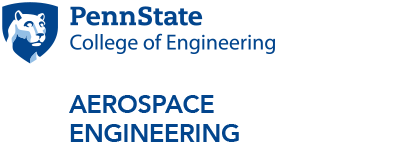Mentoring Plan for Tenure-Track Faculty
The formalism of this mentoring plan for tenure-track faculty is meant to supplement a department culture where all faculty can informally mentor, and be solicited for advice, regardless of rank. Likewise, the department encourages ongoing mentoring of all faculty once they have been granted tenure, in support of further promotion, development of research and teaching, service, and honors and recognition.
How are new faculty onboarded/oriented when they arrive on campus? What is the mechanism and timing by which a mentor or mentors is assigned to each new faculty member? When is the mentor assigned relative to the new faculty member’s start date? What is the process by which mentors will be assigned on a yearly basis?
All tenure-track professors will be assigned a mentor effective their start date, with a new mentor to be assigned each year at the start of the fall semester. The mentor will be selected by the department head in the same manner that faculty are selected for committee assignments (i.e. considering their areas of expertise, their skill for the assignment, and their availability and fair distribution of workload.) The assignment will be confirmed with the mentor and mentee as a final sanity check before being made official.
Note: all untenured, tenure-track faculty will collectively have lunch monthly with the department head for a separate form of mentoring.
What are the minimum interactions between the mentor(s) and the new faculty member? How often/long will the mentor and mentee be encouraged to meet each year?
The mentor and mentee will be urged to meet monthly. Further, the department head will regularly require the mentees to author a variety of documents, including their envisioned narrative statement for their tenure package, list of potential tenure-review letter writers, and list of intended proposals and journal papers to write, etc. The mentor will be expected to also meet with the mentee, and comment on these.
What is the process to assess the efficacy of the mentoring plan and your mentors? Is being an assigned mentor part of departmental service and reviewed annually?
Given the substantial variability in the mentor-mentee relationships — what each can bring to the relationship, and what the mentee needs given their background, experience, and progress through the tenure-track — there will not be a fixed rubric beyond the department head asking at his/her meetings with the tenure-track faculty whether their mentors are appropriately ‘available’ and ‘useful.’ The department head will also provide feedback to the mentor as appropriate. Service as a mentor will be considered as commensurate with service on most faculty committees during annual reviews.
Best Practices and Suggested Activities for Meeting the Needs of the Mentees
- Mentor pay provide assistance to the mentee in proposal writing by offering to review proposals, serving as a sounding board for new ideas, and writing joint proposals when possible.
- Mentor can make sure the community is aware of mentees’ work by introducing them to visitors or mentioning them in presentations at other institutions/funding agencies.
- Mentor could provide informal teaching advice by volunteering to attend one of their classes.
- Mentor may provide informal discussions on the progress of mentee and any problems that he or she may be facing. The mentor’s role is to be supportive in listening to their concerns.
- Mentor should exchange CV's with your mentee to stimulate discussion about career paths and possibilities.
- Mentor should ask about and encourage accomplishments, and provide constructive criticism and feedback.
- Mentor can aid the mentee in exploring the institutional, school, and departmental culture (i.e., what is valued? What is rewarded?).
- Mentor should share knowledge of important university and professional events that should be attended by the mentee.



